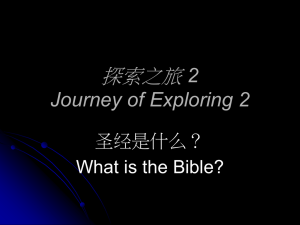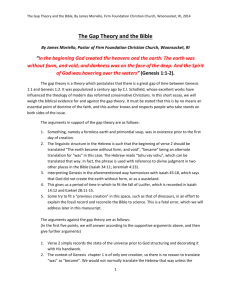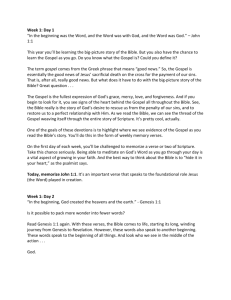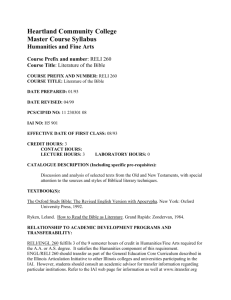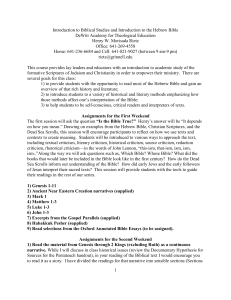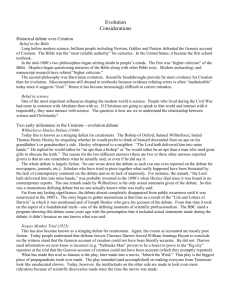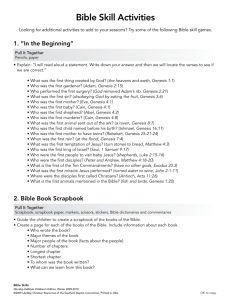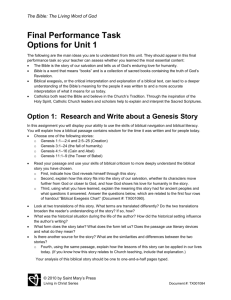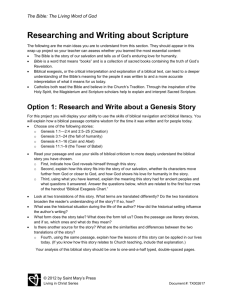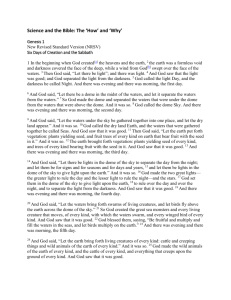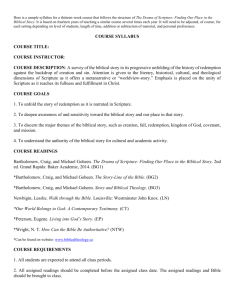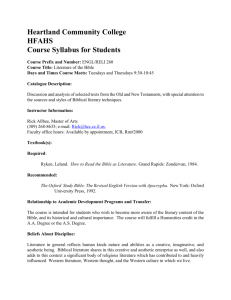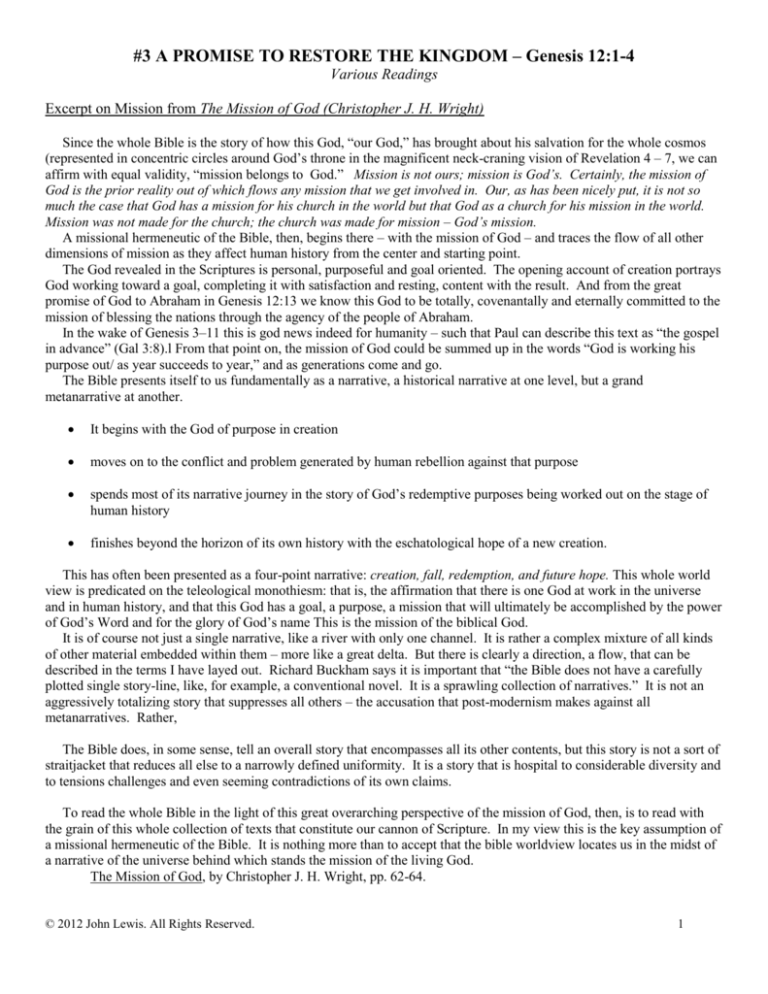
#3 A PROMISE TO RESTORE THE KINGDOM – Genesis 12:1-4
Various Readings
Excerpt on Mission from The Mission of God (Christopher J. H. Wright)
Since the whole Bible is the story of how this God, “our God,” has brought about his salvation for the whole cosmos
(represented in concentric circles around God’s throne in the magnificent neck-craning vision of Revelation 4 – 7, we can
affirm with equal validity, “mission belongs to God.” Mission is not ours; mission is God’s. Certainly, the mission of
God is the prior reality out of which flows any mission that we get involved in. Our, as has been nicely put, it is not so
much the case that God has a mission for his church in the world but that God as a church for his mission in the world.
Mission was not made for the church; the church was made for mission – God’s mission.
A missional hermeneutic of the Bible, then, begins there – with the mission of God – and traces the flow of all other
dimensions of mission as they affect human history from the center and starting point.
The God revealed in the Scriptures is personal, purposeful and goal oriented. The opening account of creation portrays
God working toward a goal, completing it with satisfaction and resting, content with the result. And from the great
promise of God to Abraham in Genesis 12:13 we know this God to be totally, covenantally and eternally committed to the
mission of blessing the nations through the agency of the people of Abraham.
In the wake of Genesis 3–11 this is god news indeed for humanity – such that Paul can describe this text as “the gospel
in advance” (Gal 3:8).l From that point on, the mission of God could be summed up in the words “God is working his
purpose out/ as year succeeds to year,” and as generations come and go.
The Bible presents itself to us fundamentally as a narrative, a historical narrative at one level, but a grand
metanarrative at another.
It begins with the God of purpose in creation
moves on to the conflict and problem generated by human rebellion against that purpose
spends most of its narrative journey in the story of God’s redemptive purposes being worked out on the stage of
human history
finishes beyond the horizon of its own history with the eschatological hope of a new creation.
This has often been presented as a four-point narrative: creation, fall, redemption, and future hope. This whole world
view is predicated on the teleological monothiesm: that is, the affirmation that there is one God at work in the universe
and in human history, and that this God has a goal, a purpose, a mission that will ultimately be accomplished by the power
of God’s Word and for the glory of God’s name This is the mission of the biblical God.
It is of course not just a single narrative, like a river with only one channel. It is rather a complex mixture of all kinds
of other material embedded within them – more like a great delta. But there is clearly a direction, a flow, that can be
described in the terms I have layed out. Richard Buckham says it is important that “the Bible does not have a carefully
plotted single story-line, like, for example, a conventional novel. It is a sprawling collection of narratives.” It is not an
aggressively totalizing story that suppresses all others – the accusation that post-modernism makes against all
metanarratives. Rather,
The Bible does, in some sense, tell an overall story that encompasses all its other contents, but this story is not a sort of
straitjacket that reduces all else to a narrowly defined uniformity. It is a story that is hospital to considerable diversity and
to tensions challenges and even seeming contradictions of its own claims.
To read the whole Bible in the light of this great overarching perspective of the mission of God, then, is to read with
the grain of this whole collection of texts that constitute our cannon of Scripture. In my view this is the key assumption of
a missional hermeneutic of the Bible. It is nothing more than to accept that the bible worldview locates us in the midst of
a narrative of the universe behind which stands the mission of the living God.
The Mission of God, by Christopher J. H. Wright, pp. 62-64.
© 2012 John Lewis. All Rights Reserved.
1




